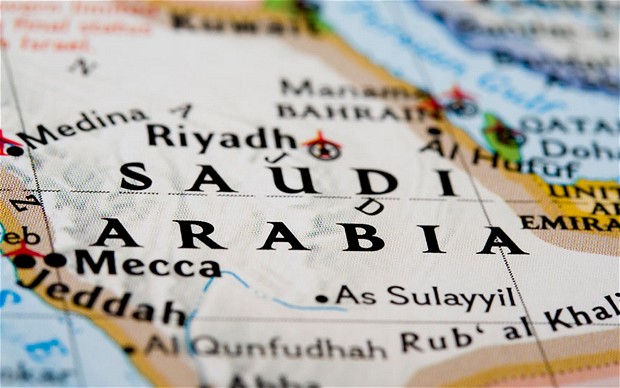Saudi King Abdullah Dies at Age 91: Succession Crisis Looms
Saudi King Abdullah passed away today in hospital from a terminal bout of pneumonia today at the age of 91. He was born in 1924, the son of the Kingdom’s founder in 1932, King Abdulaziz Al-Saud. Abdullah became King in 2006. While purportedly a reformer especially in educational development, he did not address socio cultural initiatives and the reining in the medieval code of punishment under the Wahhabist extremist doctrine. He endeavored to bring about a draconian peace settlement of the Israel Palestinian dispute that never came to reality during his reign. The mounting Sunni extremism from the Muslim Brotherhood offshoot Al Qaeda and especially Salafist Jihadism of the Islamic State now threatens the Kingdom’s security internally and on its frontiers. With the fall of neighboring Yemen to Houthi Shiite rebels who control the capital Sa’ana and many provinces, that raises the prospects of contending with being surrounded by an ally of Iran battling Al Qaeda in the Arabian Peninsula. The alliance with the US under President Obama contending with the civil war in Syria and conquest by the Islamic State of a large swath of territory in both Syria and Iraq, the Kingdom faces daunting security issues. Both The Kingdom and Emirates members of the Gulf Cooperation Council have problemtic relations with Qatar, a supporter of the Muslim Brotherhood and affiliate Hamas in Gaza. Saudi dominance of OPEC has been eroded through the vaulting of US oil production, although it has tried to use the oil weapon in maintain production and market share in the face of a global drop in demand which has caused a major drop in revenues for some major oil producers, Iran, Russia and Venezuela.
As noted in a December 31, 2014 Washington Institute for Near East Policy article by Simon Henderson, succession to the late King Abdullah is very problematic and likely to engender some turmoil domestically impacting international relations. His overall assessment was, “The death of King Abdullah will exacerbate tensions within the royal family over who should replace him.” He wrote:
His successor would be his half brother Crown Prince Salman, who is seventy-eight. Despite the appearance of robustness given by a heavy public schedule of meetings, Salman’s brain is evidently ravaged by dementia. Visitors report that after a few minutes of conversation, he becomes incoherent. The fact that Salman appears in public at all is attributed to his determination to become king — or, more likely, the ambition of his closest relatives that he should do so.
Such are the rivalries in the House of Saud that King Abdullah has been unable to displace Salman, although last March he appointed another half brother, Muqrin — the youngest surviving son of Saudi Arabia’s founder, King Abdulaziz, also known as Ibn Saud — to the new position of deputy crown prince. Controversially, this meant passing over the claims of other half brothers and maneuvering in the Allegiance Council to secure an advance baya, or oath of allegiance, to try to cement Muqrin’s new status. Significantly, Muqrin’s confirmation was officially reported as not unanimous.
A power vacuum in Riyadh following the death or extended hospitalization of the Saudi monarch will prompt concern in international capitals because of Saudi Arabia’s importance as the world’s largest oil exporter. Despite its dominant market position, the kingdom has seemed powerless to stop the recent price fall, instead trying to preserve market share and perhaps undermine U.S. shale exploration. Other areas of concern would include the impact on the Saudi leadership’s position in Arab and Muslim-majority states, particularly in coping with the threat of the Islamic State of Iraq and al-Sham (ISIS), against which Riyadh is a key member of the U.S.-led coalition. Also, simmering trouble among Iran-influenced Saudi Shiite activists is a perpetual worry.
Washington has traditionally tried to avoid influencing succession in Saudi Arabia because of lack of leverage and possible adverse consequences. But with the prospect of a messy transition, the United States will need to emphasize the importance of competent leadership emerging quickly, not relying on the mere hope that the House of Saud can sort this out itself. Although probably best done discreetly, there is also a danger that quiet diplomacy will be mistaken more widely for indifference.
EDITORS NOTE: This column originally appeared in the New English Review.

